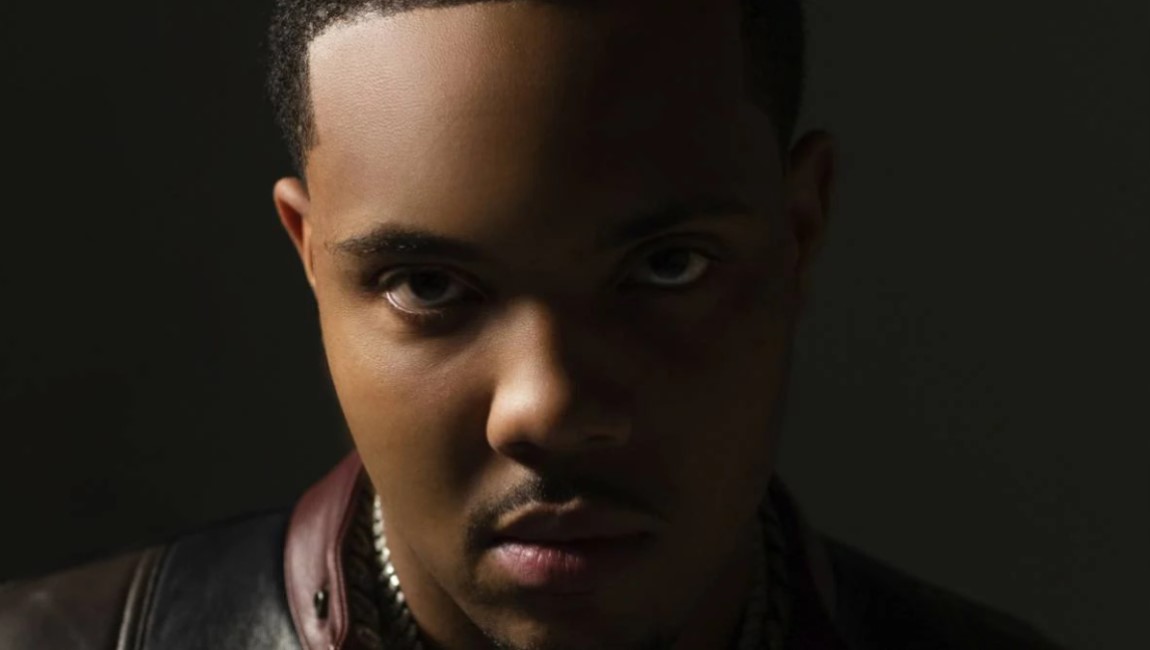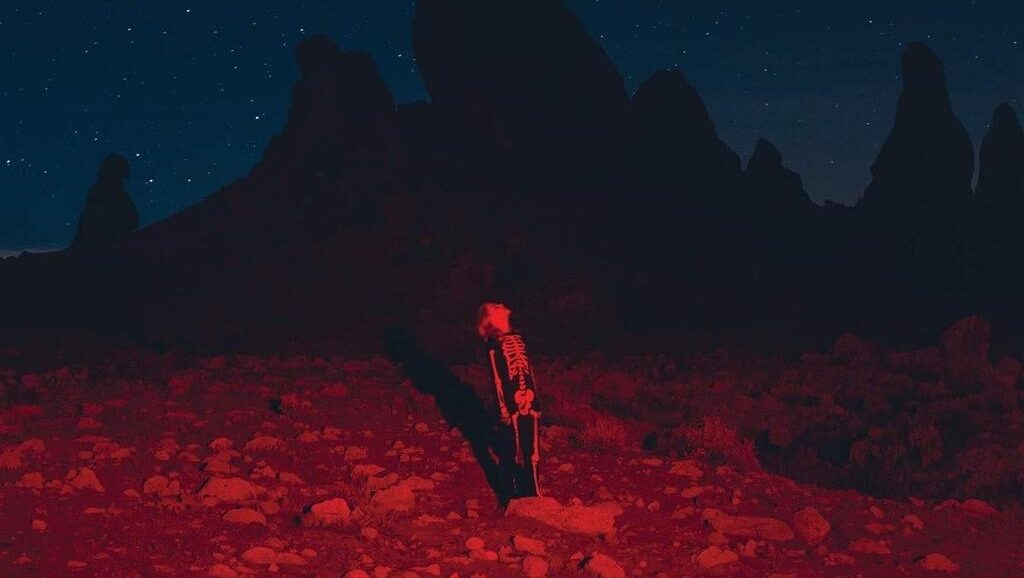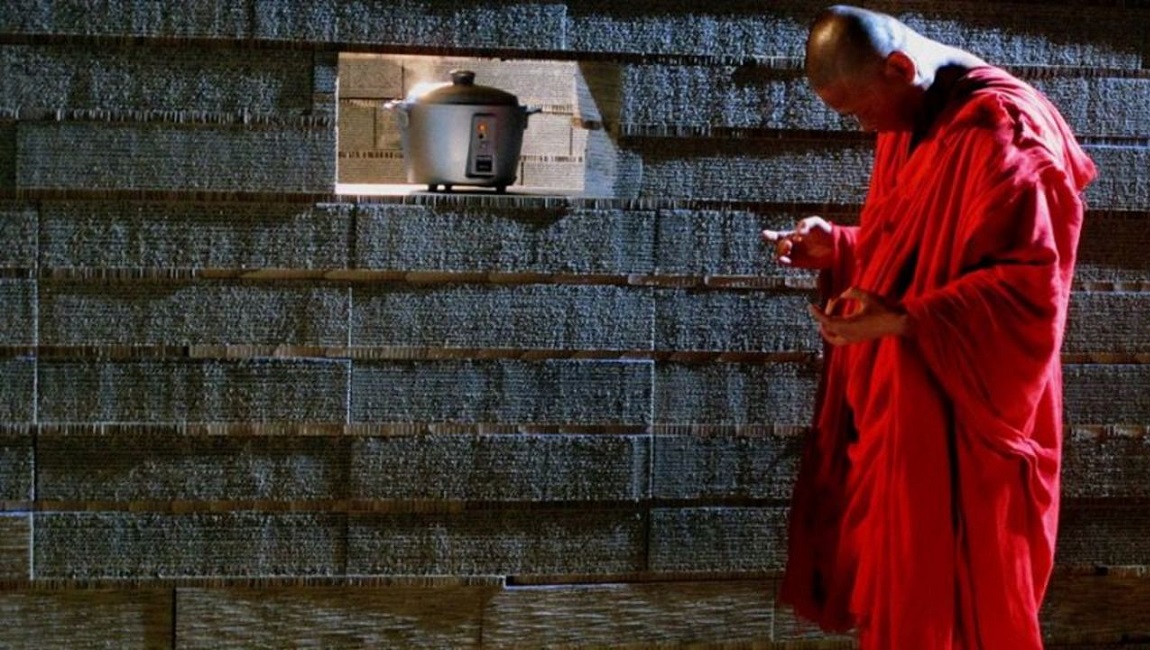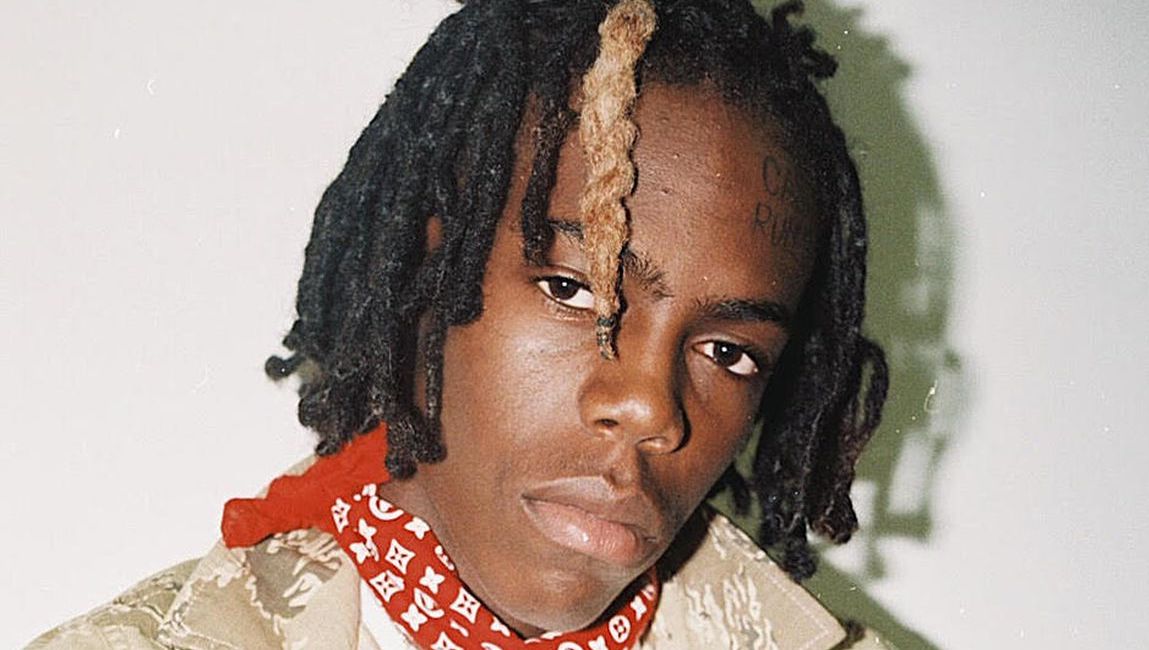G Herbo
On his latest album 25, G Herbo is attempting to pivot into something greater than his current self — that is, a successful solo artist with commercial viability. He’s gestured towards this outcome before, most clearly on his last album, 2020’s PTSD, which found him contemplative and compassionate (two sides of the rapper that haven’t really been explored in too much depth before), but was ultimately bogged down by a general lack of vision beyond stating the plainly obvious (and also having Chance the Rapper show up post-The Big Day). Still, credit where credit is due, this was something of a major artistic step for the Chicago rapper, who first gained a massive following for whipping up some of the most brutal regional drill songs the scene could muster. But from that particular movement, he’s the only one who’s remained stagnant career-wise: Lil Bibby became a mogul, Lil Durk caught a second-wind, Famous Dex lost his mind, while Chief Keef moved to L.A. and became a legend in his own right. In one way or another, all of these emcees have moved on, either to greater heights or lower lows, all the while Herbo became the last man standing. So for the past few years, he’s been doing anything and everything to change this general perception: giving out features at a rate that would make Lil Wayne pause for a second, founding a local charity aimed at assisting victims of trauma, and dissing fans of Avengers: Endgame by calling them “lame nerds.”
In keeping with this image rehaul, 25 (named after the rapper’s age, in a Fellini-esque meta move) is more of the same: it’s a solid release from a consistently solid artist, albeit one that tries a bit too hard to really get you to see Herbo as some transcendent inspirational figure. On “Demands,” he rails against crooked police, a broken judicial system, institutional racism — and the members of his own community, claiming they’re not taking accountability for their actions and should buy “back the block cause now we making M’s,” the type of advice Jay-Z would enthusiastically support. He even goes as far as to close the track on his own MAGA-esque slogan (Make The Hood Great Again), in case he didn’t make it clear enough that capitalism and bureaucracy are the only forces powerful enough to restore social justice. When trying to address issues this structural, he comes across short-sighted; when he’s sticking to his subjective experiences and how they’ve bettered him, his raps land much harder. The melodic “Cry No More” finds Herbo and guests lamenting their losses and begging for their internal pain to end with a heightened sense of pathos. And on “Cold War” he makes the usually over-blown rapper claim that he does everything for his family — and then brings on his own son to confirm the validity of such statements. But the songs Swervo still sounds the most comfortable recording — which also happen to be the best, most exciting ones here — is when he revs things up a notch and gets to really spitting, as on “T.O.P” or “Really Like That.” The latter is something of the pure ideal for the project: it doesn’t sacrifice Gerbo’s ferocious delivery and dexterous flow, but also readily displays his newfound maturity and vulnerability (“Stood over my n***a dyin’, and I really cried tears”) over Tay Keith’s exhilarating production. But even as he gracefully enters into this elder statesman status, Herbo closes things out by reminding us who he really is over everyone else, with a statement as self-affirming as it is threatening: “I be rappin’ for the streets, you n***as rappin’ for the pigs.”
Writer: Paul Attard Section: What Would Meek Do?

Credit: Pavielle Garcia
Leon Bridges
After exploding on the scene six years ago, Leon Bridges is back with his third full length record, Gold-Diggers Sound, named for the studio where the album was recorded. This features Bridges at his most confident point in the history of his career, shifting genres again to a modern R&B sound with all of his well-known nostalgic flairs intact.
Bridges was relatively young when he first became famous, barely cracking 25 as his songs soared on the streaming charts. Younger audiences found his style and approach to music relatable, as he gave the impression in his songs that he was insecure and (understandably) a little nervous about the strides he had made already. His 2015 record Coming Home projects those emotions onto a sonic backdrop that appeals to his older listeners; smooth, rich vocals cascade over songs that take the general shape of classic Sam Cooke hits. It seemed like he had found his groove and was going to stick with it, but his second album Good Thing took his familiar restrained approach and applied them to the soul and pop sounds of the ’80s. Now, on Gold-Diggers Sound, he reinvents his style again, here adding a modern R&B twist, and this time he comes out swinging — at long last, his full emotional palette is on full display. He sings about closeness with sexual partners, injustice dispensed by a racist system, and a desire to come out of his shell a little bit more, which is also to say, establish a more clear identity. To that end, Gold-Diggers Sound is a good start.
The songs on his latest record are slower, cut through with more intentional melodies, each note an emotional choice as much as a sonic one. As his vocal cascades across the record, listeners are given a richer portrait of Leon Bridges, the man behind the artist, than at any other point in his career, and without this deeply-felt sincerity, the album wouldn’t work. The hip-hop beats would feel disingenuous, the soul would feel misplaced, and the vulnerable crooning would feel like pure performance. In many ways, this is indeed the Leon Bridges we’ve always known: he still has a love for classic Motown and rock & roll styles, still imbues his vocal with a timeless quality, and still sings about his deepest loves. The difference on Gold-Diggers Sound is the newfound honesty with which he offers it all up, and the payoff is considerable.
During his first large venue tour, Bridges opened each encore by saying that when he worked in a restaurant, he would close his eyes as he was sweeping and imagine that he was on a stage performing to thousands of adoring fans. These were the thoughts that sustained him in those days, and he went on to explain that he was afraid every time he closed his eyes on stage, he would open them again and find himself right back in the Texas diner he used to work at, his stunning new reality a daydreamed lie. Gold-Diggers Sound, then, is about the feeling of opening his eyes and finding every adoring fan still there.
Writer: Andrew Bosma Section: Pop Rocks
Yola
Stand for Myself is only the second album released by Yola, the British country-roots maven, Nashville transplant, and sometimes Highwoman. And yet, it’s cast as something of a rebirth, which the singer makes explicit in the album-ending title track: “Now I’m alive, it’s hard to explain / It took this much time, and took this much pain.” Indeed, Yola’s travails were already well-documented on her sensational debut, Walk Through Fire, many of its songs set in the aftermath of an abusive relationship and a literal house fire. But if that album was about surviving with optimism still in tact, Stand for Myself feels like a notable leap forward in the healing process. It’s an album about reclaiming yourself; about finding your voice; about using harrowing experiences as catalysts for advocacy and compassion. Come to think of it, the album would make a great double feature with Outside Child, a similarly courageous album from Yola’s housemate and collaborator, Alison Russell.
Yola’s emboldened songwriting is mirrored in the album’s production. Once again working with Dan Auerbach, Stand for Myself feels like an assured, purposeful, and lovingly stylized update on Walk Through Fire’s country-pop. Basically, this is roots music with an extra heap of glitter: “Dancing Away in Tears” is languid after-hours disco, while “Starlight” is a full-on soul diva turn. There are also turns into cocksure British invasion pop (“Whatever You Want”) and jubilant dance music (“Diamond Studded Shoes,” the irresistible lead single). Even the more skeletal moments, like the haunted “Barely Alive,” are full of sparkling percussion and lonesome organ moans, landing it on the same astral plane as Kacey Musgraves’ spacey psychedelia. It’s a testament to Yola’s porous, bracingly inclusive definition of roots music, as well as an absolute triumph of studio musicianship; Auerbach’s session pros fill every nook and cranny of this record with glorious texture and lockstep rhythms, sounding as tight as any working band. Few albums make studio craft sound so opulent, so pleasurable, and Yola rises to the occasion not just with a full-tilt vocal performance, but with songs of striking emotional directness. She sings about friendship (“Be My Friend”), breakups (“Dancing Away in Tears”), and self-reliance (“Stand for Myself”). If individual songs sometimes feel lyrically sparse, the musicianship makes them sound rich and full; and together, they add up to a portrait of the artist who is confident and vulnerable in equal measure.
Writer: Josh Hurst Section: Rooted & Restless

Credit: Top Dawg Ent
Isaiah Rashad
The frequency and speed with which musicians are now expected to release art and content makes sore thumbs of artists whose releases are fewer and further between. These absences can take on varying tenors, from mystifying to frustrating — though, in the case of Isaiah Rashad, it’s understandable that listeners might react to his five-year gap between albums with concern. In a widely read cover story released in GQ earlier this year, Rashad confirmed these suspicions and spoke directly about his struggles with substance abuse and social isolation after relocating to Los Angeles, reaching a rock bottom that he’s worked hard to climb out of in the time since. These startling disclosures set up certain expectations for his latest, evocatively titled The House is Burning, and the sort of personal narrativizing Rashad might engage in. But though there are indeed fiery cuts worthy of the album name, the majority of The House is Burning is unexpectedly tranquil in mood, with Rashad calmly assessing his damages and mostly shrugging them off. Though the tone is jarring on a record whose arrival is something of a return from wilderness, The House is Burning evinces the calm of a life lived, finding its protagonist free of expectations and confident in his signature musical strengths.
The musical strengths in question — namely, Rashad’s verbal dexterity and his beat selection’s union between the trunk rattles of west coast and southern hip hop — have been present since his debut, 2014’s Cilvia Demo. Then as now, Rashad dances between darkness and light, reveling in debauched arrogance on one song, and constructing dioramas of family strife on another. On The House is Burning, Rashad’s more contemplative palette wins out, with most of the album’s combustion quotient mainly relegated to the Lil Uzi Vert-featuring “From the Garden” and “Lay Wit Ya” (both album highlights). More typical are the album’s R&B cuts like the bubbly “Wat U Sed,” which leverages Rashad’s signature croak on hooks and verses that resemble vintage A$AP Ferg, or the dazed closer “HB2U,” a victory lap in subject and tone that resembles drifting on cruise control into the sunset. If the brighter tone of the record comes as a welcome surprise, it’s nonetheless tempting to imagine a version of The House is Burning that didn’t elide the details of his journey from Point A to Point B. The zombie metaphor of opener “Darkseid” comes closest, but addresses the subject in only the vaguest of terms; meanwhile, the ungenerous, if not unwarranted, speculation as to beef with TDE (Rashad’s label) is ruled out only by virtue of the album’s features list and several half-hearted shoutouts.
The album’s avoidance of these topics — and indeed the emotional high-wire acts that characterized Rashad’s earlier releases — might disappoint some listeners, but its reorientation around core components comes with its own benefits. This less “lyrical miracle” version of Rashad is unexpectedly at home in the fluidity of the streaming era that his earlier, more regional music pre-dated (the excellent Smino-featuring “Claymore” is a potent example of his newfound malleability). The album’s lower emotional stakes also come as something of a relief after Rashad’s public struggles, in that way recalling the pivot taken on Danny Brown’s most recent release uknowhatimsayin¿, a record whose tempered, occasionally staid tone was mitigated by the indication that the Brown who made it was in a better place than his previous records suggested. The same could be said for the Isaiah Rashad of The House is Burning: initially pegged as the next Kendrick Lamar, and later a lost cause, here he is just another person who has, in the last year, decided to prioritize his own long-term sustainability and chosen personhood over persona.
Writer: Michael Doub Section: What Would Meek Do?
Mariah the Scientist
Mariah the Scientist’s 2019 album Master was a solid debut anchored by two amazing singles. “Beetlejuice” showed Mariah Buckles’ prowess as an songwriter who can wring poignancy out of the bitterest anger and the smallest happiness, “Reminders” proved her ear for rich R&B production, and both displayed her ability as a vocalist to sing every line like it was the most important one she’d ever written. Her sophomore album, Ry Ry World, is another step up: the same vocal and songwriting skills are still there, but the deep cuts are better, the production is more ambitious, and her artistic vision is clearer than ever.
Ry Ry World happens to have one of the best album covers of the year: Mariah, eyes closed and smiling blissfully, clutches her hand around an arrow impaled in her bare chest as blood drips down between her fingers. It’s a perfect expression of the songs within, which mix pain and happiness and vulnerability together into sharp, complicated emotions. The production is simple, built mostly around heavy drums and watery synths, and it stays in the background, keeping the focus squarely on Buckles’ vocals, which have a piercing yet soft quality to them that makes her performances captivating.
Most of the songs on Ry Ry World are slow and introspective, but a few do cautiously approach upbeat territory. Tracks like “Aura” and “Maybe” are album highlights, with low-key but propulsive production and lyrics about being caught in the complicated space between a relationship and a breakup (“I can be what you need / … Maybe you’ll come to your senses”; “Maybe we should escape / Maybe I should’ve stayed”). Second single “Always n Forever” is the closest the album gets to a straight-up pop song — it even has cowbell — but the Lil Baby feature is completely unnecessary. At least his presence works to get more eyes on Mariah’s music, but, artistically speaking, there’s not much justification for him being here. And Young Thug’s verse on “Walked In” is an even bigger offender, dragging down what would otherwise be a perfectly pleasurable song with some confusing horniness (“I can swap you out with your cousin / After school, I study, I put it in your cubby;” the mind reels). Aside from the scourge of unnecessary male presence, though, Buckles’ part on these two tracks is just as good as the rest of the project.
No matter the tempo or mood, Buckles loves to sing like she’s not mad, just disappointed (and if she is mad, you’ll hear her deliver it in the most charming tone possible). She laments in the chorus of “2 You”: “Look at what we made / Sure was beautiful / Now I lay it in a grave / Now I’m all covered in dirt” — but when overlaid onto the fluttering, wordless vocal loop that underpins the track, these lines sound less like a funeral for love lost than an ode to love experienced. The album’s best vocal performance, however, doesn’t come until the penultimate track, “All For Me.” “What does she have on me?,” Mariah exclaims in its chorus, voice distant and echoing as if she’s shouting her frustrations to an empty room. There’s a dark, almost sinister quality to the track that’s only intensified by the closing track, “Revenge,” which fades out slowly as she repeats, “He said he loved me, why does it hurt? / … Want to get even, I want revenge.” It’s a bold choice to end the album on such an unresolved, bitter note, but Buckles has already proved in the preceding tracks her ability to spin even the darkest of emotions into a delicate, compelling picture.
Ry Ry World is the best type of sophomore album, the kind that improves and expands on all the potential you saw in an artist’s debut while still retaining the singular voice that listeners have already grown to recognize. It establishes, above all else, that Mariah the Scientist is the undeniable center of her records’ identity: her narrators yearn, beg, regret, resent, hope beyond reason, and love without reciprocation, yet she is always in control of her own story.
Writer: Kayla Beardslee Section: Ledger Line

Credit: Anna Webber
David Crosby
Since releasing Croz in 2014, eleven years after his previous solo album, David Crosby has been even more prolific than usual, dropping five albums in seven years, all nostalgically beckoning to the folksy, soft rock tradition established with Stills, Nash and Young. Now, at 80 years old and five-and-a-half decades into his career, Crosby could fall into myriad pitfalls that artists of bygone eras sometimes succumb to, whether it be a forced change in style, strained performance, or tired rehash of now irrelevant sounds from the peak of one’s career. Yet, with For Free, Crosby has honed in on the timeless, enjoyable sound of professionalism, channeling a Steely Dan-esque approach to instrumentation, balance, and overall production (helmed by longtime Crosby collaborator James Raymond). This is most noteworthy, obviously, on song-of-the-year contender “Rodriguez for the Night,” penned by none other than Donald Fagen, a sleazy, funky yacht rock track that’s layered divinely. Here, Crosby tells the story of a “drugstore cowboy” who longs to be an outlaw named Rodriguez whom the apple of his eye has fallen for. On this track — and across the record — Crosby’s vocals are adorned with some pitch correction (he’s 80, after all, and has decades of drug use behind him) that serves to make his voice sweeter but also slightly uncanny. It works well when paired against the enthralling instrumental featuring chirpy saxophones, lush French Horn and flugelhorn, lovely vocal harmonies, and angular bass and keyboard.
In fact, the whole middle section of this record is filled with beauty and mystery. Subsequent track “Secret Dancer” tells the story of an otherworldly yet womanly presence that comes to earth, learns the ways of humans, and decides to dance only for herself in order to not be tainted by misery and other human experiences; Steve Postell’s wistful guitar matches Crosby’s yearning on this ethereal, laidback jazzy pop cut. Things pick up on “Ships in the Night,” with a percussively performed chorus that’s among the most energetic and passionate deliveries from Crosby across the album. The soft rock track, replete with a repeating twangy acoustic guitar line thrown in, recalls an earlier cut, “The Other Side of Midnight,” which has some gorgeous, expansive vocal layering. Crosby still sounds right at home on folkier tracks like the titular “For Free,” a cover of collaborator, contemporary, and ex-lover Joni Mitchell’s classic, but as ubiquitous as this track may be in a singer-songwriter’s arsenal of covers — Lana Del Rey also released a version this year, taking a similarly faithful approach to the track — Crosby’s wise voice jells with featured folk singer Sarah Jarosz’s dear, southern drawl in memorable ways. The track, like the entirety For Free and the rest of Crosby’s late-career, signifies a victory lap for an artist whose ear for a beautiful, tender line and refined songwriting sensibilities are still sharp.
Writer: Tanner Stechnij Section: Ledger Line







